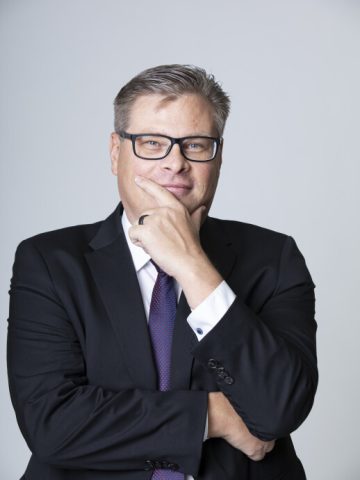Years of danger in EU-Russia relations

Kari Liuhto,
Professor, Director,
Pan-European Institute, University of Turku,
Finland
In September 2010, I gave a presentation on the future of Russia. I presented two extreme scenarios: reform and stagnation. The reform scenario had been raised mainly to soften my message. The main message of the presentation was that it seemed possible that Russia was drifting into socio-political stagnation. In the stagnation scenario, I warned about the following dangers: the concentration of power in the hands of the security elite, a return to Soviet-style governance, the repression of free media, the plight of minorities, state capitalism, and the rise of geopolitical goals at the heart of foreign policy.
My presentation received an incredulous reception. I have to admit that 10 years ago, the stagnation scenario did not seem completely certain, which is why I had also included in my presentation the possibility of reform. It must also be remembered that a moment earlier, Russia had enjoyed historically rapid growth, which continued from Yeltsin’s last year of presidency until the global financial crisis that hit Russia in the autumn of 2008.
Now, just over a decade later, Russia’s future development looks clearer. Socio-political stagnation in Russia is deepening. Examples include the Foreign Agent Law, which restricts civil society, the constitutional reform that allows Putin to rule until 2036, the politically-motivated verdict of Navalny, and the repression of free media on the eve of the September 2021 parliamentary elections. I predict that the current stagnation will continue and even deepen during Putin’s reign. In other words, it is possible that under Putin, Russia will gradually drift in the direction of a hard line. I do not consider it particularly probable that Putin’s presidency will be followed by liberal reform. More likely is the continuation of the current line or even the capture of a hard line. I assume that there is a crisis in Russian society ahead, which could lead to a deeper confrontation with the West.
I believe that the five guiding principles of the European Union provide a good basis for the future governance of relations with Russia. These principles are: (1) compliance with the Minsk agreements; (2) closer EU relations with the Eastern Neighbourhood; (3) strengthening resilience (including improving energy security and combating hybrid threats); (4) selective co-operation with Russia for the benefit of the EU (including in the fight against the corona pandemic, terrorism and climate change); and (5) supporting EU-Russia contact between Russian civil society and the people. Economic interdependence as an instrument of integration is no longer emerging, as it does not seem to work with Russia. Ukraine and Lithuania are illustrative examples of economic relations not guaranteeing effective political relations with Russia. Before the beginning of the war in Ukraine, Ukraine was Russia’s fifth most important trading partner, but despite this, Russia seized Crimea from it. Similarly, Lithuania is the most dependent on EU trade with Russia, but despite this, Lithuania’s political relations with Russia are freezing. The reason for the ineffectiveness of interdependence is that Russia is prone to use the dependence of its counterpart to achieve its geopolitical goals.
The EU’s overall dependence on trade with Russia is not particularly high. Russia accounts for five percent of the EU’s external trade. In comparison, Russia accounts for less than three percent of China’s foreign trade and less than one percent of U.S. foreign trade. The difference is highlighted when looking at Russia’s role as an energy supplier. For China and the United States, Russia’s role as an energy supplier is small, while 50 percent of the EU’s imports of natural gas, including liquefied natural gas (LNG), 40 percent of coal, almost 30 percent of crude oil and 20 percent of uranium come from Russia. As a whole, more than a fifth of the EU’s primary energy consumption is met by Russian energy. In other words, some 100 million EU citizens are completely dependent on Russian energy supplies. More detailed information in the book “The Future of Energy Consumption, Security and Natural Gas: LNG in the Baltic Sea region”. The EU’s dependence on Russia has increased during this millennium. The main reasons for this are the contraction of the EU’s domestic energy production and the eastern enlargement of the EU, as the eastern EU is much more dependent on Russian energy than the western EU. Now, through the Green Deal, the European Commission intends to reduce the EU’s dependence on external energy supplies. Consequently, the Union’s dependence on Russian energy will decrease. The change will be slower than many in the EU hope, but faster than many Russian decision-makers believe.
Finland should follow the EU’s general policy on Russia, but it is also wise to send a message to Russian leadership that Finland is a reliable and predictable neighbour. Finland is far-sighted to implement the measures that will keep the bridge open for future co-operation with Russia. But in the event that relations between the West and Russia become even colder, Finland should pay more attention to protecting herself – even militarily, if needed.
A presentation on Russia’s economic relations with the world’s superpowers and the future of EU-Russia relations can be found via the following link (open the “More” dropdown menu).
Expert article 3091
> Back to Baltic Rim Economies 4/2021
To receive the Baltic Rim Economies review free of charge, you may register to the mailing list.
The review is published 4-6 times a year.
